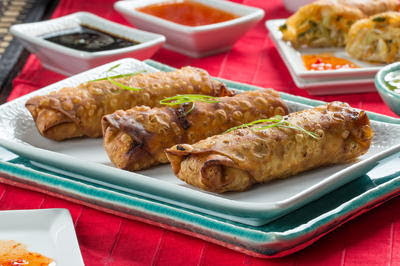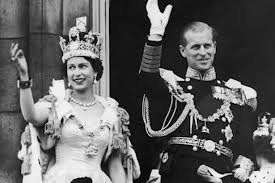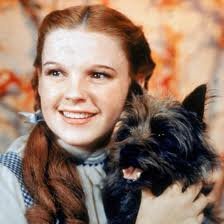
The lion (Panthera leo) is a large cat of the genus Panthera native to Africa and India. It has a muscular, broad-chested body; short, rounded head; round ears; and a hairy tuft at the end of its tail. It is sexually dimorphic; adult male lions are larger than females and have a prominent mane. It is a social species, forming groups called prides. A lion's pride consists of a few adult males, related females, and cubs. Groups of female lions usually hunt together, preying mostly on large ungulates. The lion is an apex and keystone predator; although some lions scavenge when opportunities occur and have been known to hunt humans, lions typically do not actively seek out and prey on humans.
The lion inhabits grasslands, savannahs and shrublands. It is usually more diurnal than other wild cats, but when persecuted, it adapts to being active at night and at twilight. During the Neolithic period, the lion ranged throughout Africa and Eurasia from Southeast Europe to India, but it has been reduced to fragmented populations in sub-Saharan Africa and one population in western India. It has been listed as Vulnerable on the IUCN Red List since 1996 because populations in African countries have declined by about 43% since the early 1990s. Lion populations are untenable outside designated protected areas. Although the cause of the decline is not fully understood, habitat loss and conflicts with humans are the greatest causes for concern.
One of the most widely recognised animal symbols in human culture, the lion has been extensively depicted in sculptures and paintings, on national flags, and in contemporary films and literature. Lions have been kept in menageries since the time of the Roman Empire and have been a key species sought for exhibition in zoological gardens across the world since the late 18th century. Cultural depictions of lions were prominent in Ancient Egypt, and depictions have occurred in virtually all ancient and medieval cultures in the lion's historic and current range.
Etymology
The English word lion is derived via Anglo-Norman liun from Latin leōnem (nominative: leō), which in turn was a borrowing from Ancient Greek λέων léōn. The Hebrew word לָבִיא lavi may also be related. The generic name Panthera is traceable to the classical Latin word 'panthēra' and the ancient Greek word πάνθηρ 'panther'.
To read a lot more, go here: https://en.wikipedia.org/wiki/Lion
If you love ordering spring rolls from Chinese restaurants, then this is the recipe for you! Our spring rolls are easy to make and taste amazing. They're filled with a flavorful veggie mixture and fried until golden and crispy. They make a great appetizer or can be served right alongside some fried rice and your favorite takeout main dish!
- 1/2 cup soy sauce
- 1/4 cup packed light brown sugar
- 1 tablespoon ground ginger
- 2 teaspoons garlic powder
- 6 cups shredded Chinese cabbage
- 2 cups fresh bean sprouts
- 1 large carrot, shredded
- 3 scallions (green onions), chopped
- 12 spring roll or egg roll wrappers
- 1 egg, lightly beaten
- Oil for frying
- In a small bowl, combine soy sauce, brown sugar, ginger, and garlic powder; mix well.
- In a large bowl, combine cabbage, bean sprouts, carrot, and scallions; mix well. Pour soy sauce mixture over cabbage mixture; toss to coat well and let stand 10 minutes. Place cabbage mixture in a colander and squeeze to drain well.
- Spoon about 1/4 cup cabbage mixture evenly onto center of each egg roll wrapper. Lightly brush edges of egg roll wrapper with beaten egg. Fold one corner of each egg roll wrapper up over cabbage mixture then fold both sides over, envelope fashion; roll up tightly.
- Heat about 1-1/2 inches oil in a deep medium saucepan over medium-high heat until hot but not smoking. Add spring rolls in batches and fry 2 to 3 minutes per side, or until golden. Drain on a paper towel-lined platter. Serve immediately, but be sure to use caution -- the filling will be hot.
- To serve these like they do in Chinese restaurants, don't forget the dipping sauce! A couple of our favorite dipping sauces are duck sauce and spicy mustard.
- Did You Know?: In China, spring rolls are traditionally eaten during the Chinese New Year as a way to welcome in the spring. They're also said to represent wealth (because of their golden color). Spring rolls can vary in size, filling, and cooking method (some are fried, while others are steamed), from region to region. In the U.S., spring rolls and egg rolls are pretty similar, with the main difference being the filling. While both contain veggies, egg rolls typically include some kind of meat, chicken, or fish too.

1922 – Judy Garland, American actress and singer (d. 1969)

1982 – Tara Lipinski, American figure skater
Roll out the red carpet for one of the country’s ultimate comfort foods. National Egg Roll Day on June 10th delivers one American Dream story and satisfies a craving at the same time. You know you’re craving an egg roll now!
The egg roll began as a Chinese-American tradition that extended to Vietnamese immigrants reaching for the American Dream. These traditions grew from the unfailing dedication of families in chop suey palaces serving hungry workers. Restaurants across the country perfected their own versions of the egg roll with a variety of finely chopped ingredients – pork, shrimp, cabbage, onions, bamboo shoots, water chestnuts, and seasonings. And it was all rolled up in a thin pastry wrap and deep-fried.
The egg roll is a satisfying snack or an exciting part of a meal at home or away. But, it’s also played an essential role in making dreams come true for several generations of immigrants in the United States. And it continues to be in many ways.
Our ability to celebrate the egg roll is as close as our freezer, telephone, restaurant, or even our own recipe. The egg roll is versatile, too. Our love of the egg roll evolves to meet strict diets, exotic flavors, and so much more! What more could we ask for a celebration?
HOW TO OBSERVE NATIONAL EGG ROLL DAY
Celebrate the hard-working history of the egg roll. Pick up a pack of Van’s Kitchen’s artisan batch egg rolls found in hundreds of grocers and convenience stores across the country. While you celebrate, enjoy them with your favorite someone.

NATIONAL EGG ROLL DAY HISTORY
 Van’s Kitchen founded National Egg Roll Day in 2019 to honor the company’s founding in June of 1986. Van and Kim Nguyen, two deserving Vietnamese immigrants, made their ultimate American Dream come to life with their passion for creating authentic egg rolls. Like many immigrant families before them, Van and Kim Nguyen came from Vietnam. Together, they established a home and family business in Dallas, Texas. They diligently hired hard-working employees, filling out paperwork in a language that was not their own. The Nguyens created a business model based solely on their greatest strength: making authentic egg rolls for those they love. Using only fresh, whole ingredients and crafting the egg rolls in artisan batches, Van’s Kitchen sets themselves apart by maintaining their decades-long commitment to making every bite the best one.
Van’s Kitchen founded National Egg Roll Day in 2019 to honor the company’s founding in June of 1986. Van and Kim Nguyen, two deserving Vietnamese immigrants, made their ultimate American Dream come to life with their passion for creating authentic egg rolls. Like many immigrant families before them, Van and Kim Nguyen came from Vietnam. Together, they established a home and family business in Dallas, Texas. They diligently hired hard-working employees, filling out paperwork in a language that was not their own. The Nguyens created a business model based solely on their greatest strength: making authentic egg rolls for those they love. Using only fresh, whole ingredients and crafting the egg rolls in artisan batches, Van’s Kitchen sets themselves apart by maintaining their decades-long commitment to making every bite the best one.











1 comment:
Love serving egg rolls with guacamole.
Post a Comment